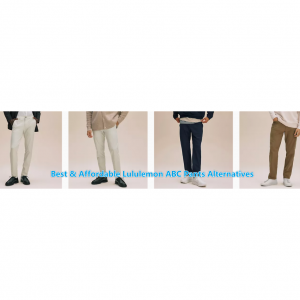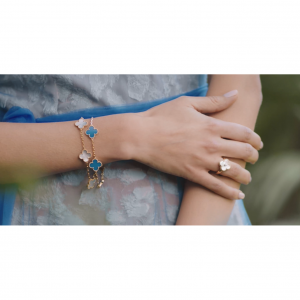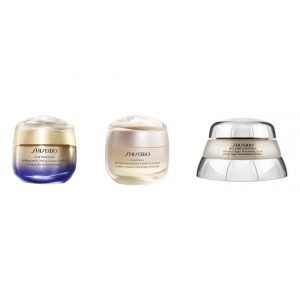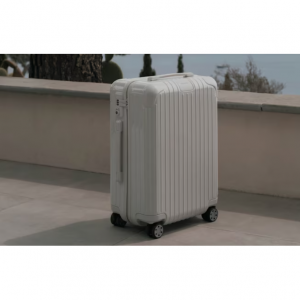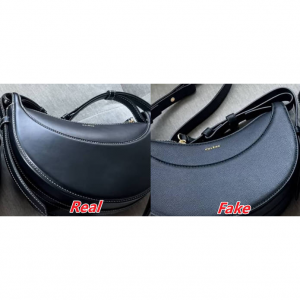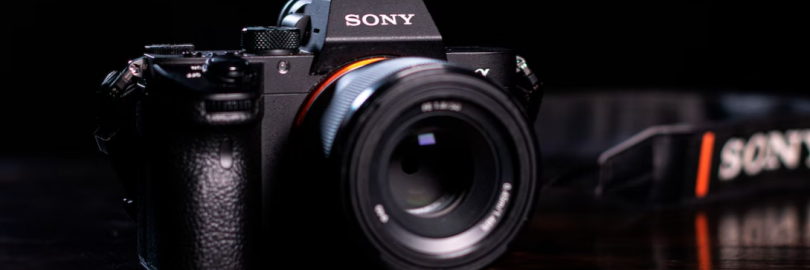
Sony A7 III vs. Sony A7R III vs. Sony A7S III: Differences and Reivews 2025
- The Sony Alpha A7 III, Sony Alpha A7R III and the Sony Alpha 7S III are three digital cameras that were revealed to the public, respectively in February 2018, October 2017, and July 2020. All the A7 III, A7R III and the A7S III are mirror-less interchangeable lens cameras that are equipped with a full frame sensor.So what is the difference between Sony A7R III and A7S III? Is A7 III better than A7S III? Is Sony a7 III good for photography? Or is Sony a7R III good for video? Below is an overview of the main specs of the three cameras as a starting point for the comparison.
Sony α7 III Overview
Google User Reviews:4.7/5.0

The Sony a7 III is an entry-level full-frame camera that goes well beyond the basics in features, with excellent image quality, 10fps subject tracking, and 4K video capture.
Distinguished by its updated sensor design, the Sony a7 III is a well-rounded camera suitable for both photo and video applications in a variety of working situations. Refined for improved speed and low-light performance, a new 24.2MP Exmor R BSI CMOS sensor and BIONZ X processor benefit image quality, video capabilities, and AF performance. The a7 III also sports a revised body design, with a new touchscreen LCD, improved EVF, larger battery, and dual memory card slots.
Despite its billing as a 'basic' model, the Sony a7 III is a supremely capable full frame camera. Though it doesn't have the most megapixels or shoot the fastest bursts, its well-judged mix of resolution, speed, features and price point make it an easy recommendation for all kinds of photographers and all kinds of photography.
Sony α7 III Key Specs
Announcement Date: 2018-02-27
24MP - Full frame BSI-CMOS Sensor
ISO 100 - 51200 ( expands to 50 - 204800)
Sony E Mount
Sensor-shift Image Stabilization
3.00" Tilting Screen
2360k dot Electronic viewfinder
10.0fps continuous shooting
4K (UHD) - 3840 x 2160 video resolution
120fps High-Speed Video
Built-in Wireless
650g. 127 x 96 x 74 mm
Weather Sealed Body
Advantages and Disadvantages
| Pros | Cons |
|
|
Where to Buy Sony α7 III Cheapest?
Sony:Starting at $1999.99 (up to 0.5% cashback)
Adorama:Starting at $1998 (up to 8% cashback)
B&H Photo Video: Starting at $1998 (up to 1.5% cashback)
What's in the Box?
Sony a7 III Mirrorless Camera
Sony NP-FZ100 Rechargeable Lithium-Ion Battery (2280mAh)
Sony AC Adapter
Micro-USB Cable
Sony ALC-B1EM Body Cap for E-Mount Cameras
Accessory Shoe Cap
Eyepiece Cup
Shoulder Strap
Limited 1-Year Warranty
Is the Sony α7 III Worth Buying?
Buy it if ...
You’re interested in shooting sport
the A7 III’s autofocusing won’t disappoint. In addition, the silent shooting capability, wide dynamic range and good noise control make it appealing to social and wedding photographers.
You want a great all-rounder camera
Its high-resolution sensor, fast and reliable autofocus and good dynamic range made it wildly popular among portrait, landscape photographers.
Don't buy it if ..
You’re professionally
If you’re really serious about shooting weddings professionally,the Sony A9 II or the Sony A1 are the cameras to go for.
Only the latest model will do
Look to the Sony A7 IV. It supersedes the A7 III in every way – including price.
Money Saving Tip:
If you like online shopping, don't forget to sign up at Extrabux!(What is Extrabux) , then you can enjoy up to 30+% cashback on your purchase from Extrabux! Sign-Up Bonus: Free to join it & get $20 welcome bonus! Student Benefits:As long as you are a student at school, you can get a free whole year long VIP Card worth $199.
Extrabux.com cooperates with many merchants, such as: Walmart (Up to 4% cashback), Sephora(4% -5% cash back),Dior (Up to 6% cash back), Moosejaw (5% -6% cash back), LOOKFANTASTIC (Up to 10% cash back), Microsoft (Up to 7% cash back) and so on.
Sony α7R III Overview
Google User Reviews:4.8/5.0

The Sony A7R III sees improvements in pretty much every area: physical design features, image quality, speed and performance, as well as video recording capabilities and battery life. The A7R III remains a top-notch camera for pixel-peepers, capturing images with stunning detail and dynamic range, but thanks to inheriting performance and AF improvements from the A9, the camera's also fast and nimble enough for sports and action.
The A7R III fixes lots of the shortcomings of the previous two models to become an all-around extremely versatile camera for all types of photographers and video creators.
Proving that speed, resolution, and video capabilities can all coexist, the Sony a7R IIIA is a versatile, high-performance camera characterized by not only its resolution, but by its multimedia versatility.
Sony α7R III Key Specs
Announcement Date: 2017-10-25
42MP - Full frame BSI-CMOS Sensor
No Anti-aliasing (AA) filter
ISO 100 - 32000 ( expands to 50 - 102400)
Sony E Mount
Sensor-shift Image Stabilization
3.00" Tilting Screen
3686k dot Electronic viewfinder
10.0fps continuous shooting
4K (UHD) - 3840 x 2160 video resolution
Built-in Wireless
657g. 127 x 96 x 74 mm
Weather Sealed Body
Advantages and Disadvantages
| Pros | Cons |
|
|
Where to Buy Sony α7R III Cheapest?
Sony:Starting at $1999.99 (up to 0.5% cashback)
Bestbuy:Starting at $1959.99 (up to 4% cashback)
B&H Photo Video: Starting at $2095 (up to 1.5% cashback)
What's in the Box?
Sony Alpha a7R III (V2) 42.4MP Full-Frame Mirrorless Camera Body
Body Cap
Rechargeable Battery (NP-FZ100)
Battery Charger (BC-QZ1)
Power Cord
USB Cable
Shoulder Strap
Accessory Shoe Cap
Eyepiece Cup
Cable Protector
(Lens Not Included)
Sony 1 Year Limited Warranty
Vanguard VEO 2 235AB 5 Section Aluminum Tripod
Slinger Shoulder Bag
64GB SD Memory Card
Is the Sony α7R III Worth Buying?
Buy it if ...
you want a high quality image camera
Sony α7R III has a really high dynamic range, only second to Nikon D800E, and the low light performance is also great. And you get the 36 megapixels you also have on the Nikon D800/D800E.
you want a flexibility camera
Many adapters have been made, making it possible to use all kinds of lenses on the camera.
Don't buy it if ..
You mostly shoot sports and action
While the Sony α7R III is by no means a slow coach, there are better cameras out there for pro sports performance.Value is your main priority
As tempting as the Sony α7R II is, it is also likely overkill for many amateur photographers. If you don't shoot much video, or tend to specialize in one particular style, then you'll get more bang for your buck with a more specialist camera and an extra lens or two with the money saved.
Sony α7S III Overview
Google User Reviews:4.8/5.0

Sony's alpha 7S Mark III is the third iteration in the most video-focused of the company's a7 series of full frame cameras. It's essentially a native 4K camera with impressive video specs and a revised user interface. It can capture UHD 4K footage at up to 120p in 10-bit 4:2:2 encoding and promises 16-bit Raw video output.
With extreme full-frame movie performance including high sensitivity (expanded ISO up to 409600), 15-stop wide dynamic range, 4K 120p2, fast and dependable autofocusing, and extra-strong image stabilization, the α7S III again raises the bar for movie makers.
The Alpha 7S III features a newly developed 12.1-megapixel1 Full-frame Backside-illuminated (BSI) Exmor R CMOS sensor that delivers sensitivity, speed and superior images and movie. It takes full advantage of the large pixels and BSI copper wiring structure to more than double the sensitivity and readout speed2. In addition, this new Exmor R sensor features Sony’s acclaimed fast hybrid autofocus with 759 phase detection AF points and 92% coverage. The high sensitivity also allows it to autofocus in light as low as EV-611.
Sony α7S III Key Specs
Announcement Date: 2020-07-21
12MP - Full frame BSI-CMOS Sensor
ISO 80 - 102400 ( expands to 50 - 409600)
Sony E Mount
Sensor-shift Image Stabilization
3.00" Fully articulated Screen
9440k dot Electronic viewfinder
10.0fps continuous shooting
4K (UHD) - 3840 x 2160 video resolution
240fps High-Speed Video
Built-in Wireless
699g. 129 x 97 x 81 mm
Weather Sealed Body
Advantages and Disadvantages
| Pros | Cons |
|
|
Where to Buy Sony α7S III Cheapest?
Adorama:Starting at $3498 (up to 8% cashback)
B&H Photo Video: Starting at $3498 (up to 1.5% cashback)
What's in the Box?
Sony a7S III Mirrorless Camera
Sony NP-FZ100 Rechargeable Lithium-Ion Battery (2280mAh)
Sony BC-QZ1 Battery Charger
Sony ALC-B1EM Body Cap for E-Mount Cameras
USB Type-C to Type-A Cable
Cable Protector
Shoulder Strap
Accessory Shoe Cap
Eyepiece Cup
Limited 1-Year Warranty
Is the Sony α7S III Worth Buying?
Buy it if...
You shoot long video clips
With its humble 4K capture, there’s less strain on the Sony A7S III’s sensor and processor – and in turn, we didn’t experience any overheating issues when testing out the camera, nor were there recording limitations.
You need stellar low-light performance
The Sony A7S III combines a new sensor and processor with beautiful image processing and excellent dynamic range, to deliver class-leading low-light performance.
Don't buy it if...
You want maximum bang for your buck
If you need an affordable 4K camera, you can get better-value options than the A7S III, especially if you know you’ll be shooting primarily in well-lit conditions.
You need a lot of pixels
Whether you’re talking about photos or videos, the Sony A7S III captures them with comparatively low resolution when compared to the Panasonic S1H, Blackmagic Pocket Cinema Camera 6K or the EOS R5, which climb up to 6K, 6K and 8K respectively.
You’re a daylight photographer
If you shoot in a studio and can control lighting, like shooting on a tripod, or need pixel-power, avoid this camera.
Sony A7 III vs. Sony A7R III vs. Sony A7S III: Comparison Side by Side
Body and Design
Sony α7 III
The a7 III's bigger grip is more comfortable compared to previous-generation a7-series cameras
The larger battery provides all-day shooting stamina
Front and rear dials, and the rear jog dial, are more pronounced and easy to use
Some buttons, especially the new AF-ON and AEL buttons could be bigger and offer more feedback
Dual card slots, (although only one is rated for faster UHS-II memory cards)
Viewfinder is same resolution as predecessor, looking a little low-res
Reduced maximum screen brightness compared to predecessor
Auto ISO implementation is industry best-practice
Customization options can be daunting, but are incredibly useful
Sony α7R III
Body itself has become slightly deeper, as has the grip at the front of the camera.
Move to a slightly larger body brings a whole host of improvements
The rear screen, like the a9, supports touch control, and usefully, fully disables the viewfinder eye sensor when flipped out.
AF point joystick, which greatly improves the camera's usability.
Sony α7S III
Redesigned menus with touchscreen operation
Large, high resolution viewfinder
Updated ergonomics from a9 II and a7R IV
Dual card slots that accept either SD or CFexpress Type A
Autofocus
The autofocus system in the Sony a7 III is lifted from the company's advanced a9 pro sports model, and in short, it rocks.
Sony A7 III
There are a total of 693 phase detection autofocus points that cover almost all of the frame - that's tied for the most we've seen on any camera, ever
Using the camera in Continuous autofocus (AF-C) will give you the fastest performance most of the time (see stop-down focusing below).
If you're shooting video, the 'Wide' autofocus area does a good job of focusing for you, since choosing your subject using Sony's 'tap-to-track' implementation isn't as user-friendly as the competition
Sony A7R III
Comes with some impressive autofocus specifications, including 399 on-sensor phase detection AF points
At the base of all of these are the AF drive modes, AF-S, AF-C and AF-A,which chooses between the other two drive modes, based on its understanding of the subject.
Menu options for AF-S and AF-C to dictate whether the camera should prioritize achieving focus, maintaining continuous drive speed or striking a balance between the two when you're shooting bursts of images.
Sony A7S III
Autofocus is adjustable and can be effective, but isn't as powerful or dependable as Sony's stills photography AF
10-bit S-Log3 footage gives plenty of dynamic range, but not 15 useable stops
Raw output can be encoded as ProRes RAW by Atomos recorders but the footage requires more work for processing and the tools aren't necessarily available to yield a major benefit over capturing 10-bit Log footage
Image Quality
Sony A7 III
The a7 III is among the best low-light cameras on the market
Great sharpness, at the expense of some moiré patterns
Excellent dynamic range
Best JPEG noise reduction and sharpening on the market
Color is improving, particularly skintones
Sony A7R III
Noise performance appears very slightly improved over the Mark II, which puts it ahead of the Nikon D850 and some distance beyond the Canon EOS 5DS R.
In JPEG mode there are hints of the improvements in color rendering that Sony promised.
At higher ISOs, the noise reduction is pretty sophisticated, striking a good balance between detail retention and noise suppression.
Sony A7S III
With ISO settings ranging from ISO 2000-4000 delivering results that look nearer to ISO 200-400, the A7S III is a liberating camera to use.
A7S III’s new sensor and faster readout speeds result in the jelly effect being hardly noticeable, unless you’re a seriously aggressive panner.
The 10fps continuous AF/AE works beautifully when eye-tracking a person walking towards the camera, and it also did a great job with a tabby cat, although it struggled with a black cat when positioned slightly off-angle.
Sensor and Processor
The A7R III boasts a 42.2MP back-illuminated sensor, which is higher than the 24.2MP and 12.2MP sensors inside the A7 III and A7S III respectively.
Sony A7 III: Full-frame (35.6x23.8mm) Exmor R CMOS, 24.2MP effective
Sony A7R III: Full-frame (35.9x24mm) Exmor R CMOS, 42.4MP effective
Sony A7S III: Full-frame (35.6x23.8mm) Exmor CMOS, 12.2MP effective
Video
The Sony A7 III was a credible choice for video recording, but it lacked the option to shoot in 4K. The newer A7 III version has both options, as do the other two cameras.
Sony A7 III: 4K UHD video up to 30p, Full HD up to 120p
Sony A7R III: 4K UHD video up to 30p, Full HD (1920x1080) up to 120p
Sony A7S III: 4K UHD video up to 30p, Full HD (1920x1080) up to 120p
Lens Mount and Compatibility
Sony's G Master lenses, pictured here with the second-generation models, are the most desirable and technologically advanced optics the company has developed for the system
Sony A7 III: Sony E-mount lenses (or older A-mount via adapter)
Sony A7R III: Sony E-mount lenses (or older A-mount via adapter)
Sony A7S III: Sony E-mount lenses (or older A-mount via adapter)
AF System
The A7 III and A7R III (above) not only boast Hybrid AF systems, but they also feature AF joysticks, while the A7S III video AF system is pretty effective
Sony A7 III: Hybrid AF, 693 phase-detect points, 425 contrast-detect points
Sony A7R III: Hybrid AF, 399 phase-detect points, 425 contrast-detect points
Sony A7S III: not quite as smart as the stills AF system
Burst Shooting (fps)
The A7R III's sensor may make it seem like a less obvious choice for burst shooting, but 10fps capabilities and a wide-area Hybrid AF system make it a strong option.
Sony A7 III: 10fps with AF/AE tracking (or 8fps in live view mode). Up to 177 JPEGs, 89 compressed Raw or 40 uncompressed Raw frames.
Sony A7R III: 10fps with AF/AE tracking (or 8fps in live view mode). Up to 76 compressed RAW or JPEG, or 28 uncompressed RAW frames.
Sony A7S III: 10 fps, 6.0fps with AF-C, 10 fps, 20 fps (e-shutter) 12 fps (mech)
Price
Of course we can’t conclude without mentioning the price, which is one of the main differences between the three cameras.
The A7 III is now two years old and can be found for $1800, £1750 or €2000 for the body only..
The A7R III starting from $2000 / €2036 / £1780 for the body only.
The A7S III is more expensive, starting from $3500 / €4200 / £3,800 for the body only.
Sony A7 III vs. Sony A7R III vs. Sony A7S III Full Comparison Chart
| General | Sony Alpha A7 III | Sony Alpha A7R III | Sony Alpha A7S III |
| Brand | Sony | Sony | Sony |
| Announced | 2018-02-27 | 2017-10-25 | 2020-07-21 |
| Body Type | SLR-style mirrorless | SLR-style mirrorless | SLR-style mirrorless |
| Sensor | |||
|---|---|---|---|
| Type | BSI-CMOS | BSI-CMOS | BSI-CMOS |
| Size | Full frame | Full frame | Full frame |
| Dimensions | 35.8 x 23.8 mm | 35.9 x 24 mm | 35.6 x 23.8 mm |
| Area | 852.04mm2 | 861.60mm2 | 847.28mm2 |
| Megapixels | 24 megapixels | 42 megapixels | 12 megapixels |
| Max Resolution | 6000 x 4000 | 7952 x 5304 | 4240 x 2832 |
| Max Native Light sensitivity | 51,200 ISO | 32,000 ISO | 102,400 ISO |
| Max Boosted Light Sensitivity | 204800 ISO | 102400 ISO | 409600 ISO |
| Min Native Light sensitivity | 100 ISO | 100 ISO | 80 ISO |
| Min Boosted Light Sensitivity | 50 ISO | 50 ISO | 50 ISO |
| RAW Support | |||
| Autofocus | |||
| AF Touch | √ | √ | √ |
| AF Continuous | √ | √ | √ |
| AF Single | √ | √ | √ |
| AF Tracking | √ | √ | √ |
| AF Selective | √ | √ | √ |
| AF Center | √ | √ | √ |
| AF Multi Area | √ | √ | √ |
| AF Live View | √ | √ | √ |
| AF Face Detection | √ | √ | √ |
| AF Contrast Detection | √ | √ | √ |
| AF Phase Detection | √ | √ | √ |
| Number of Focus Points | 693 | 425 | 759 |
| Lens | |||
| Manual Focus | |||
| Lens Mount | Sony E | Sony E | Sony E |
| Number of Available Lenses | 185 | 185 | 185 |
| Screen | |||
| Type | Tilting | Tilting | Fully articulated |
| Size | 3.00" | 3.00" | 3.00" |
| Resolution | 922k dots | 1,440k dots | 1,229k dots |
| Touch Screen | √ | √ | √ |
| Viewfinder | |||
| Viewfinder | Electronic | Electronic | Electronic |
| Viewfinder Resolution | 2,360k dots | 3,686k dots | 9,440k dots |
| Viewfinder Coverage | 100% | 100% | 100% |
| Viewfinder Magnification | 0.78x | 0.78x | 0.91x |
| Photography Features | |||
| Max Mechanical Shutter | 1/8000s | 1/8000s | 1/8000s |
| Shutter Priority | √ | √ | √ |
| Aperture Priority | √ | √ | √ |
| Manual Exposure Mode | √ | √ | √ |
| Custom White Balance | √ | √ | √ |
| Built-in Image Stabilization | Sensor-shift | Sensor-shift | Sensor-shift |
| Built-in Flash | × | × | × |
| External Flash | |||
| Continuous Shooting | 10.0 fps | 10.0 fps | 10.0 fps |
| Multi-Segment Metering | √ | √ | √ |
| Average Metering | √ | √ | √ |
| Spot Metering | √ | √ | √ |
| Partial Metering | × | × | × |
| AF-Area Metering | × | × | × |
| Center Weighted Metering | √ | √ | √ |
| AE Bracketing | √ | √ | √ |
| WB Bracketing | √ | √ | √ |
| Video Features | |||
| Max Video Resolution | 3840 x 2160 | 3840 x 2160 | |
| Video Formats | MPEG-4, AVCHD, XAVC S, H.264 | MPEG-4, AVCHD, XAVC S | |
| Microphone Port | √ | √ | √ |
| Headphone Port | √ | √ | √ |
| Connectivity | |||
| Wireless Connectivity | Built-In | Built-In | |
| HDMI | √ | √ | √ |
| Physical | |||
| Environmental Sealing | √ | √ | √ |
| Weight | 650g | 657g | |
| Dimensions | 127 x 96 x 74mm | 127 x 96 x 74mm | |
| Battery Life | 610 shots | 650 shots | |
| Other Features | |||
| Timelapse Recording | √ | √ | √ |
| GPS | None | None | None |
| DxO Sensor Scores | |||
| DxO Overall Score | 96 | 100 | 85 |
| DxO Color Depth | 25.0 | 26.0 | 24.2 |
| DxO Dynamic Range | 14.7 | 14.7 | 13.4 |
| DxO Low Light ISO | 3730 | 3523 | 3900 |
Conclusion:Which One to Buy?
So what conclusions can be drawn? Is there a clear favorite between the Sony A7 III ,A7R III and A7S III III? Which camera is better? Below is a summary of the relative strengths of each of the three contestants.
Reasons to Choose Sony A7 III:
More detail: Offers more megapixels (42.2 vs 12MP) with a 87% higher linear resolution.
High quality composites: Can combine several shots after pixel-shifting its sensor.
Better image quality: Scores substantially higher (14 points) in the DXO overall assessment.
Richer colors: Generates images with noticeably better colors (2.3 bits more color depth).
Maximized detail: Lacks an anti-alias filter to exploit the sensor's full resolution potential.
More dynamic range: Captures a larger spectrum of light and dark details (0.8 EV of extra DR).
Better low-light sensitivity: Requires less light for good images (0.5 stops ISO advantage).
Better studio light control: Has a PC Sync socket to connect to professional strobe lights.
Easier time-lapse photography: Has an intervalometer built-in for low frequency shooting.
Easier device pairing: Supports NFC for fast wireless image transfer over short distances.
More heavily discounted: Has been available for much longer (launched in October 2017).
Reasons to Choose A7R III:
Enhanced Eye AF
Pixel Shift Multi Shooting
New Low-Vibration Shutter
4K HDR with Hybrid-Log-gamma S-Log3
More Choices to Assign as Custom Functions
A7R III uses the NP-FZ100 Lithium-Ion Battery from Sony a9
15 Stop Dynamic Range & 5.5 Step 5-Axis Stabilization
USB 3.1 Type-C Connection for Tethering
New Image Processor and LSI for Better Image Quality
10 FPS Continuous Shooting with Either Mechanical or Electronic Shutter
Reasons to Choose Sony A7S III:
Better moiré control: Has an anti-alias filter to avoid artificial patterns to appear in images.
More detailed viewfinder: Has higher resolution electronic viewfinder (9440k vs 3686k dots).
Faster data transfer: Supports a more advanced USB protocol (3.2 vs 3.1).
More solid recording: Has a full-sized HDMI port for a sturdy connection to an external recorder.
Larger viewfinder image: Features a viewfinder with a higher magnification (0.91x vs 0.78x).
Better jpgs: Has a more modern image processing engine (BIONZ XR vs BIONZ X).
Better video: Provides higher movie framerates (4K/120p versus 4K/30p).
More flexible LCD: Has a swivel screen for odd-angle shots in portrait or landscape orientation.
More selfie-friendly: Has an articulated screen that can be turned to be front-facing.
More modern: Reflects 2 years and 9 months of technical progress since the A7R III launch.
Related Read:
Sony A7C vs. A7 III vs. A7 IV: Ultimate Comparison & Verdict 2025
Sony A7 IV vs. Canon EOS R6 vs. Nikon Z6 II: Pros & Cons and Final Verdict
Canon vs. Nikon vs. Sony vs. Fujifilm: Which Brand Wins the Camera Showdown?
Sony A6000 vs. Canon M50 vs. Nikon D3500: Which Option is the Best?
Sony A6000 vs. A6100 vs. A6400 vs. A6600: Ultimate Comparison & Verdict

Extrabux is an international cashback shopping site, offering up to 30% cashback from 10,000+ Stores!
B&H Photo Video, Dyson, Woodland Direct, Ooni UK, Bed Bath and Beyond, TUSHY, Zoro, Anthropologie, 4seating.com, GDF Studio, simplehuman, Appliance Parts Pros, etc.
Join to get $20 welcome bonus now! (How does Welcome Bonus work?)
Recommendation
-

Is Turkish Airlines Good for International Flights?
-
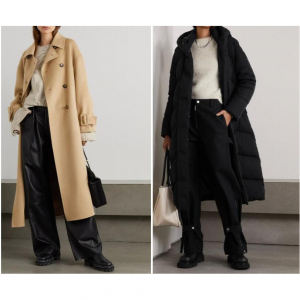
10 Best & Stylish Winter Coats for Women on NET-A-PORTER in 2025
-

Top 12 Items That Are Always Cheaper at Sam's Club!
-

Top & Best 12 Sneaker Apps/Websites for Raffles, Releases & Restocks in 2025
-

7 Best Gift Card Exchange Sites - Buy, Sell and Trade Discount Gift Card Safely and Instanly!



